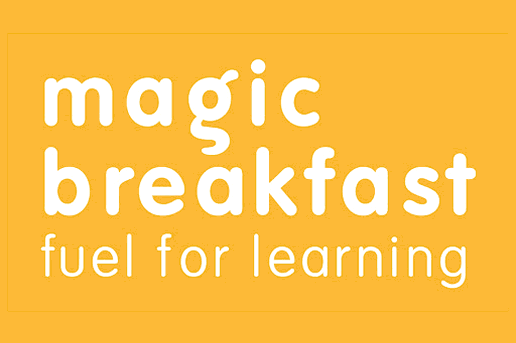Launch of Sustain’s Good Food for All Londoners Report
Measure Your Borough’s Responses to Food Insecurity.
This is a resource where you can see how every individual borough in London is doing against a range of measures to tackle food insecurity.
Councils in London have been measured against two key themes: tackling food poverty, and how they’re bringing healthy and sustainable food to people living in their borough, in this year’s Good Food for All Londoners report published by London Food Link. London Food Link, a network that strives for a food system that benefits all Londoners and led by Sustain, the food and farming alliance, has delved into council action across the city on fundamental food issues such as household food insecurity, healthy food environments, the wider food economy, and for the first time, climate action and food. Find out what’s happening in your borough and how your council performed on the good food leader board.
Cost of Living Crisis. URGENT action needed.
With the spring budget fast approaching 4in10 are calling on the Chancellor to uprate benefits in line with the Bank of England's February 2022 Monetary Policy Report forecast of 7% inflation.
We know this is not a solution to all poverty by any means and that there needs to be major changes to economic systems and social security in the longer term but it is what we can do to support many of our families now.
We have written to all our members and asked them to take action with tips for engaging local MP's and a sample email for adapting locally.
Please do feel free to use these to contact London MP's in time for them to understand how the cost of living crisis is impacting on their constituents from your experience.
A copy of the letter, tips for engagement and sample email are available here.
4in10 Newsletter 6th Jan 2022
Read our fortnightly newsletter here with news, calls to action, funding, jobs, free training and more. To receive this in your inbox every other Thursday just complete our . Everything is completely free!
4in10 Newsletter 09/12/21
4in10 Newsletter with data, reports, research, job vacancies, funding oopportunities and more. To read this issue click here. To receive the newsletter fortnightly straight to your inbox, join 4in10, London's child poverty network. It is completely free and gives advance notice of training and events and much more.
Timewise Video on Flexible Working
Timewise Webinar
Can flexible working help towards supporting low paid workers to progress and move out of poverty? Presenting the flexible working index and a discussion about flexible working as a real alternative.
https://timewise.co.uk/article/flexible-job-index-2021-a-timewise-roundtable/
Putting the onus on employers to enable all jobs to be flexible and for flexibility not to be a barrier to progression or keep people (mostly women) trapped in low paid work.
Support the campaign to keep London's Public Transport flowing.
Keeping the Wheels On
why fair funding for London’s transport system matters for those living on low incomes
Blog by Katherine Hill. 4in10's Strategic Project Manager.
It has been widely reported that Transport for London is facing a funding crisis which will come to a head this week when its current emergency funding deal expires. The causes of this crisis are complex and contested. But what is clear is that unless agreement can be reached quickly, Londoners will soon feel the impact of cuts to the capital’s transport services - and none more so than Londoners living on low incomes.
Child poverty in London is in large measure driven by the sky-high cost of living in the city. In addition to well documented high housing and childcare costs, Londoners also spend the highest amount in the UK on transport (an average of £137 a month).[1] If fares have to be increased to plug holes in Transport for London’s budget, then this will be yet another additional cost that many families struggle to meet.
As our ‘Flying Against Gravity’ report published during this year’s London Challenge Poverty Week shows, access to affordable transport is essential to ensuring that families can get to work, take children to school and visit hospitals.[2] People told us they were concerned about affordable transport because it is an enabler, without it they miss out on things such as jobs, social interaction, and education. One young man explained how not being able to afford to use the transport network leads to a sense of exclusion:
“London is meant to be someone's home, yet you have all of these boundaries and factors that just stop working class people from accessing certain spaces.” Joshua, aged 18-20, Enfield.
Without money or access to transport, people are denied their right to educational opportunities that otherwise might help them break out of the poverty cycle:
“I was...having to travel a bus and a train to get to college. So, if I'm honest, I probably went in a couple of days a week. So as a result, I didn't do very well in my A-levels because I was broke. I rarely went in because the money just didn't really stretch.” Rhiya, aged 25-30, Bromley.
In addition to these direct effects on those who are financially struggling, if public transport services are reduced it will also have repercussions for efforts to cut the number of cars on our roads. As night follows day this will mean that the effects of traffic congestion such as air pollution and road danger increase, and we know that these disproportionately affect some groups including those on low incomes.[3]
So, it is critically important that the Government and Transport for London come together this week to reach a funding agreement that will keep our trains, buses, tubes and trams running at affordable cost. Failure to do so will impact on all Londoners, but without doubt, those living in poverty would feel the effect of cuts to services the most. Without affordable public transport, streets will be dirtier and more dangerous for children, schools and jobs will be less accessible to young people, and poorer families will be constrained to small areas of the city. This would be a huge step backwards when what they deserve is a sustainable, inclusive city.
Take action today and support London TravelWatch’s campaign to #keeplondonmoving by taking their quick, easy action here: https://www.londontravelwatch.org.uk/join-the-campaign-to-protect-londons-public-transport/
[1] Fair access: Towards a transport system for everyone, (2019) Centre for London
[2] Flying Against Gravity, (2021) ClearView Research
[3] Fair access: Towards a transport system for everyone, (2019) Centre for London
Hunger Still Here - Magic Breakfast Campaign
Levelling-up School Breakfast
Please demand sustainable funding for school breakfasts, email your MP now.
A plan to improve the life chances of pupils hardest hit by the Covid-19
The levelling-up agenda is about healing some of the great social divides in our country and giving everyone a chance to climb the ladder of opportunity.
This proposal offers a bold new intervention with a proven track record that would enable the Government to take the levelling-up agenda further, faster, by comprehensively addressing child morning hunger. It would enable schools to reach 893,000 of the most disadvantaged children and their families with a nutritious school breakfast, costing the Department for Education an additional £75 million annually.
This spending proposal builds on the original work of the charity Magic Breakfast and the Department for Education delivering school breakfast provision in 2014 and 2018-2021[i].
The Proposal
The proposal is modestly costed, with expenditure raised from existing tax revenue. It would apply to all eligible state funded primary, special schools, and pupil referral units, with an option for later expansion to state funded secondary. It should replace the Department for Education’s current National School Breakfast Programme (NSBP), which reaches only 30% of eligible schools and doesn’t offer these schools the support they need to reach children most at risk of hunger. This proposal improves on current NSBP provision by making school breakfast provision permanent, sustainable, and available for all schools with high levels of disadvantage. The proposal will apply to England only, as education is a devolved issue.
The proposal will give schools with significant evidence of need support to provide a free nutritious breakfast, that meets School Food Standards, to all children. ‘Significant evidence of need’ will be defined within existing DfE guidance as schools with at least 50% of pupils in IDACI bands A-F. IDACI, The Income Deprivation Affecting Children Index, estimates the number of children living in low-income households and bands A-F signify the highest levels of deprivation. Schools will be guaranteed additional funding to cover the costs of breakfast food and delivery. Schools will also benefit from dedicated staff support in the form of an expert ‘school partner’, who are proven to play a key role in improving the uptake of the hardest-to-reach families and the effective implementation by schools of the breakfast provision[ii].
The proposal will also place a requirement on the Department for Education (DfE) to offer funding for the food and delivery costs of school breakfasts for the estimated 7300 schools with 50% or more of pupils in IDACI bands A-F.
All schools receiving funds to provide free school breakfasts would be required to adhere to a set of terms and conditions, designed to ensure funding reaches children at risk of hunger. Schools would be held accountable and required to report on pupils helped and funds spent annually by submitting a report to DfE and publishing it on their website.
Benefits/Impact
Reducing food insecurity:
2.3 million children are currently living in a household experiencing moderate to severe food insecurity, where families are compromising on the quantity and quality of the food they consume[iii]. This proposal would reach 893,000 primary age children in households of multiple disadvantage with a hunger focused intervention.
Closing the attainment gap:
School breakfast hunger contributes to the educational attainment gap. Children from disadvantaged backgrounds are more than 9 months behind their wealthier peers by the time they leave primary school, limiting further education and employment opportunities.[iv]
An Institute for Fiscal Studies evaluation found that Year 2 pupils in schools with universal free school breakfast provision made two months additional academic progress over the course of a year, compared to children in schools with no breakfast provision[v]. The study also reported that the pupils’ concentration and behaviour improved too. Additionally, teachers surveyed by a Kellogg’s report noted that children arriving at school hungry missed out on one hour of learning each day.[vi]
Benefits to life chances and future earning potential
A study by Leeds University found that children who regularly ate breakfast achieved an average of 2 GCSEs grades higher than children who rarely ate breakfast[vii]. Research by Pro Bono Economics found that for every £1 invested by government in school breakfast provision, there is £50 of returns in the economy in the longer-term due to increased lifetime earning potential[viii].
Cost
This proposal would benefit 893,000 children and involves additional Department for Education expenditure of £75m per year, replacing existing breakfast provision with an intervention that reaches children in a hunger-focused and stigma-free way.
Costings and assumptions have been developed from work with Magic Breakfast, Heinz and Pro Bono Economics, as well as known costs from the NSPB delivered by Magic Breakfast and Family Action for the DfE, which ended in 2021. Full workings can be supplied on request.
Funding sources
The Soft Drinks Industry Levy (SDIL): The SDIL raises approximately £340m annually and was intended for programmes benefiting school children’s diets and physical activity.
We are proposing £75m could be allocated using existing unallocated monies within the SDIL. Additionally, the Children’s Food Campaign have estimated that £50m in revenue could be raised to the SDIL via adjustments to the threshold for high-sugar products.[ix]
[i] National School Breakfast Programme | Magic Breakfast
[ii] Education Endowment Foundation. The National School Breakfast Programme: Scale-up Evaluation Report. September 2021, https://d2tic4wvo1iusb.cloudfront.net/documents/projects/NSBP-evaluation-report.pdf
[iii] The Food Foundation. The impact of Covid-19 on household food insecurity. January 2021, FF_Impact-of-Covid_FINAL.pdf (foodfoundation.org.uk)
[iv] Education Policy Institute. Closing the gap? Trends in educational attainment and disadvantage. August 2017, Closing-the-Gap_EPI-.pdf
[v] Educational Endowment Fund report, with the Institute for Fiscal Studies acting as the independent evaluator. January 2017, Magic Breakfast | EEF (educationendowmentfoundation.org.uk)
[vi] Kellogg’s. A lost education: The reality of hunger in the classroom. September 2013, R2_Kellogg_A_Lost_Education.pdf (kelloggs.co.uk)
[vii] The University of Leeds. Associations between habitual school day breakfast consumption frequency and academyc performance in British adolescents. November 2019, Frontiers | Associations Between Habitual School-Day Breakfast Consumption Frequency and Academic Performance in British Adolescents | Public Health (frontiersin.org)
[viii] Pro Bono Economics. The Magic Breakfast model of school breakfast provision. February 2021, The Magic Breakfast model of school breakfast provision | Pro Bono Economics
[ix] Sustain. Five Actions for government spending review to increase children’s access to healthy food. September 2021, https://www.sustainweb.org/news/sep20-csr20/





